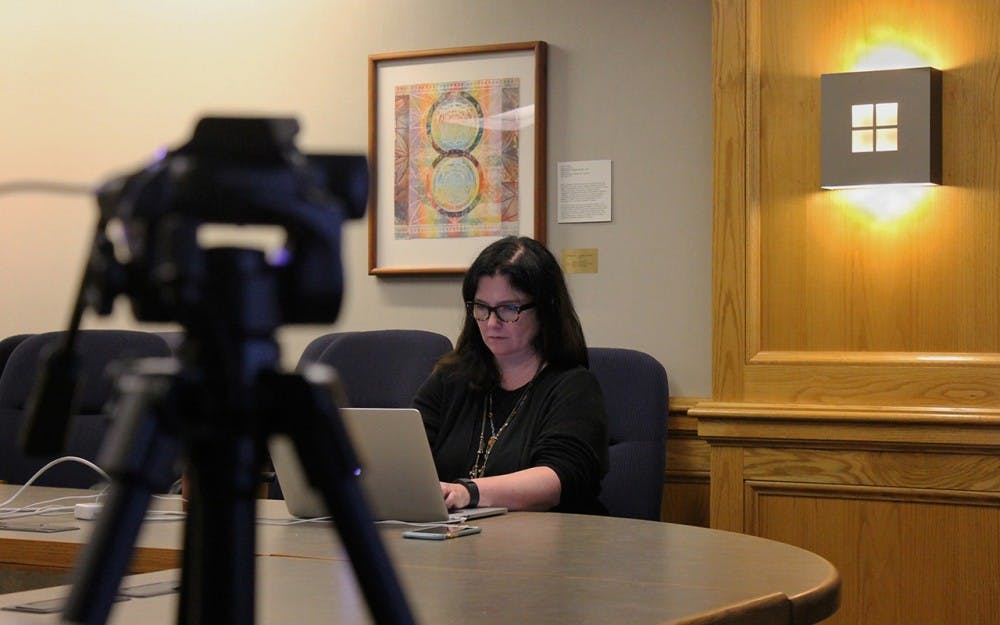News-Decoder students participated in their first interactive webinar on Tuesday with Steve Crawshaw, the international advocacy director at Amnesty International, who discussed human rights and protests from around the world.
The News-Decoder club allows students at affiliated institutions like IU to get connected and share stories of national and international interest. Students can make posts relating to worldly affairs and discuss the information with peers.
“Today’s session is the first of the new academic year for our pilot institution, and I can’t think of a more important topic for human rights, or one that’s more relevant to international relations,” News-Decoder Founder Nelson Graves said.
Tuesday’s webinar consisted of streaming three screens to the students, one for Crawshaw from London, one for Graves from Paris and one for IU journalism professor Elaine Monaghan. Students used the video chat room to send in questions to ask Crawshaw.
“Steve Crawshaw is an author and an activist with an unparalleled global perspective on human rights, resistance and change,” Graves said.
Crawshaw discussed ideas he shared in his new book, “Street Spirit: The Power of Protest and Mischief.” These stories were centered on real protests from the past, ones that would seem trivial, yet proven to be influential, he said. Some examples include red-hatted dwarves in Poland and the effect of Lego figures in Siberia.
“I love those stories for their creativity and their humor,” Crawshaw said. “It’s the things that happened out of the headlines but actually had incredibly important implications.”
Crawshaw said he believes human rights are universal. He reminded students of an agreement countries signed years ago to uphold inherent human rights, although not all countries have followed through with the agreement.
“The world does have a responsibility to react,” Crawshaw said. “I think that’s the greatest failure that we face, and sadly, I think that is going to come back to haunt us.”
Another topic Crawshaw touched on was the way in which countries obtained their freedom or natural rights. He said he prefers nonviolent protests to armed protests.
“I do understand why people might turn to weapons, but actually it’s incredible how often it has not worked,” he said.




